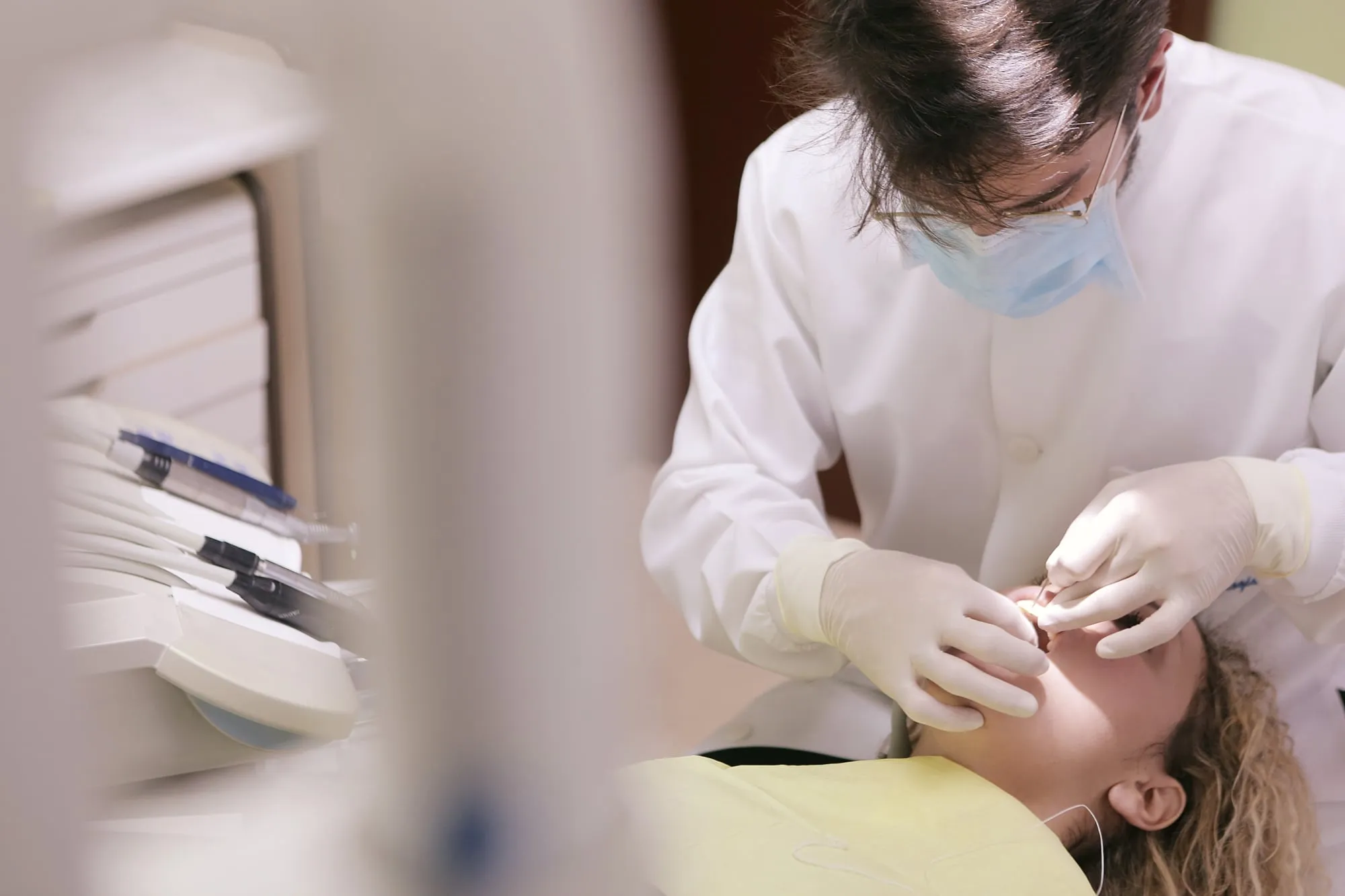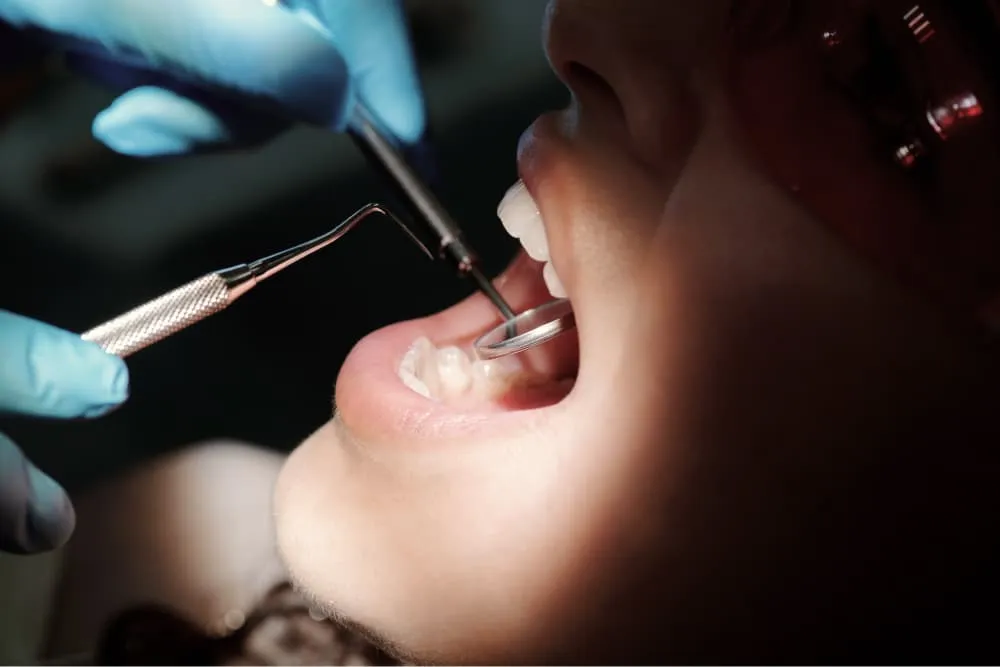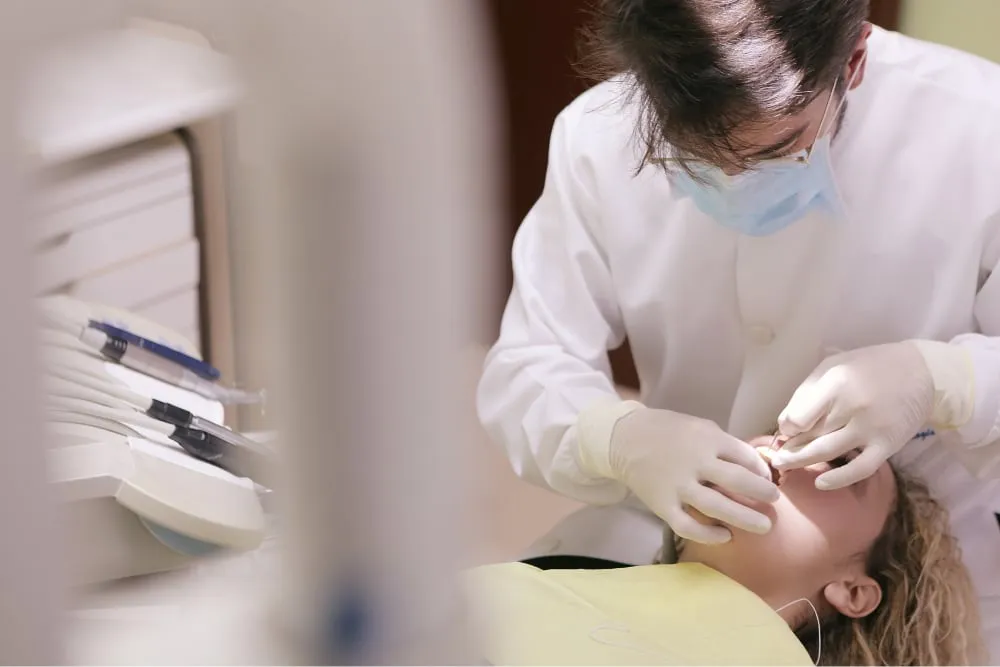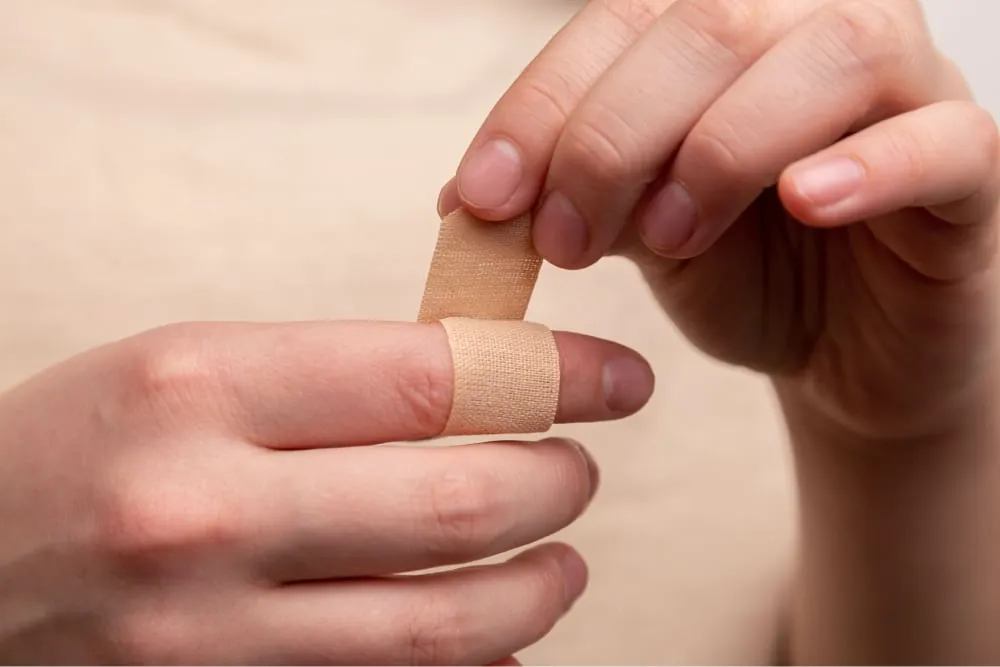How does bulimia damage teeth?
One of the biggest causes of bulimia nervosa teeth is self-induced vomiting. This common purging behavior introduces caustic acids to the oral cavity—including acids that originate from the stomach and those that come from partially digested food—which can lead to many types of damage in the area.1
Bulimia nervosa can also cause esophageal damage, including the type of weakened esophageal muscles that contribute to acid reflux.3 While this is problematic and uncomfortable in and of itself, it can also further contribute to issues related to dental erosion and tooth sensitivity.1
Chronic dehydration connected to a number of purging behaviors, such as self-induced vomiting, excessive exercise, and laxative or diuretic misuse, can bring about damage to the salivary glands.1 These issues may be exacerbated by some antidepressants, which are sometimes prescribed as part of BN treatment.1
Malnutrition caused by bulimia nervosa can also have negative effects on dental health, including issues with the development of teeth in younger patients and an increased risk of gingivitis and other bacterial-related issues.4
Types of bulimia teeth damage
Oral health issues related to bulimia nervosa are generally some of the first signs that someone is struggling with the condition.1 As such, some oral physicians are specifically trained to look for bulimia teeth damage or other effects of bulimia on teeth, including:1,2,3
- Erosion of tooth enamel
- Swollen salivary glands (sialadenosis)
- Tooth decay
- Cavities
- Trouble swallowing or a feeling of a lump in the throat
- Gingivitis
- Periodontitis (serious gum infection)
- Lesions in the oral cavity
- Higher risk of developing Barrett's esophagus and other reflux-related conditions
- Increased levels of cariogenic bacteria in the oral cavity
Bulimia teeth: signs and symptoms
Again, the oral cavity is generally one of the first areas of the body where visible damage related to bulimia nervosa can be seen.1 This can be a sign not only for doctors but for people struggling with the condition that the issue is serious.
Some common signs of bulimia nervosa teeth to look out for include:1,2,4,5
- Dry mouth
- Changing tastes for food
- Dental pain
- Tooth sensitivity to cold and heat
- Mouth sores
- Swelling of cheeks, mouth, or jaw
- Cracked lips
- Inflammation of the tongue
- Teeth that appear smoother, glassy, and/or yellow (signs of tooth erosion)
You might be interested in
How can you prevent bulimia teeth damage?
Being mindful of general oral hygiene is one of the best ways to protect against the effects of bulimia on teeth. Some common habits that can help include:5
- Brushing teeth twice daily with a small-headed, medium-bristled toothbrush
- Using fluoride-enhanced toothpaste
- Using fluoride-enhanced mouthwash (consult with your dentist about how frequently)
- Cleaning between the teeth and below the gum line using dental floss
For people with bulimia nervosa experiencing dental issues related to frequent vomiting, some additional considerations should be taken into account to mitigate the effects of stomach acid on the mouth.
It's important to not brush teeth immediately after a vomiting episode, as this can increase the amount of damage inflicted.5 Instead, someone should rinse their mouth with water or a fluoride-enhanced mouthwash after vomiting. Teeth should not be brushed for at least an hour after vomiting.5
Working with a nutritionist may help ease bulimia teeth signs related to malnutrition. Your dentist can also recommend additional practices that may help repair any bulimia teeth damage.
Finding treatment for bulimia nervosa teeth
If you experience serious damage to the teeth or salivary glands due to bulimia nervosa, more intensive measures and dental work may be necessary. It's important to immediately speak with your dentist or another oral health professional to assess damage and develop a suitable treatment plan.
Still, critical to any effort to repair bulimia teeth and prevent future bulimia teeth damage is stopping the behaviors that cause the damage. Dental care and adequate nutrition are just two components of a comprehensive, multidisciplinary eating disorder treatment program that can address the underlying condition of bulimia nervosa.
Recovery is within reach
At Within Health, we understand that eating disorders are complex conditions. We help create individualized treatment plans to ensure you get exactly the care you need, all without having to leave home.
Contact us today to learn more about how we can help ease the symptoms of bulimia nervosa and the signs of bulimia teeth.
Get help today 


































